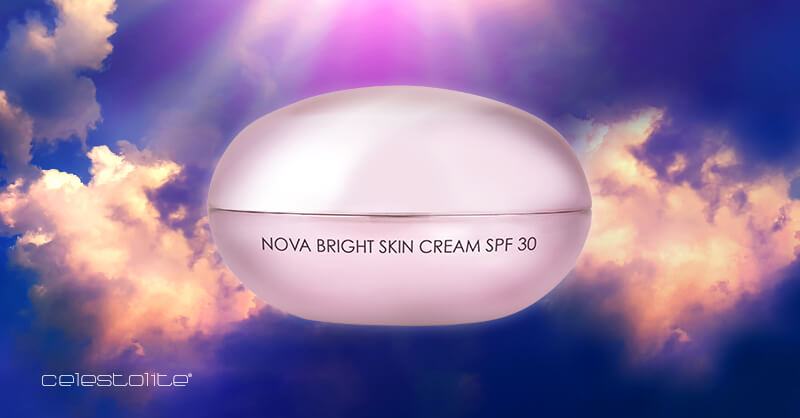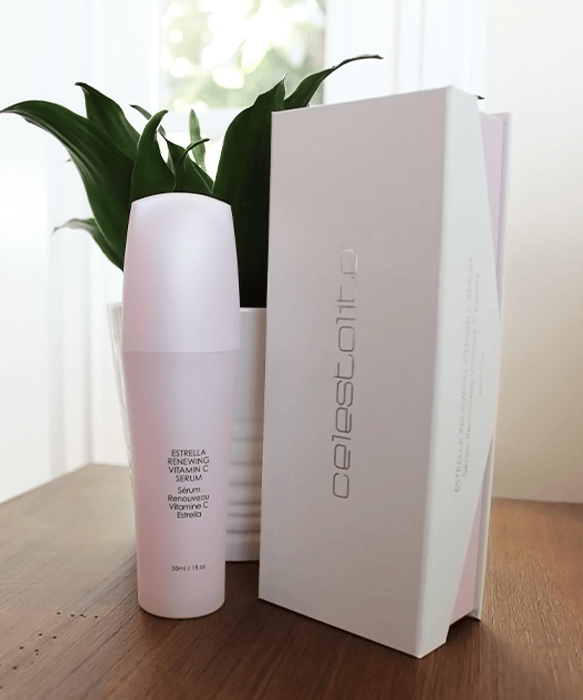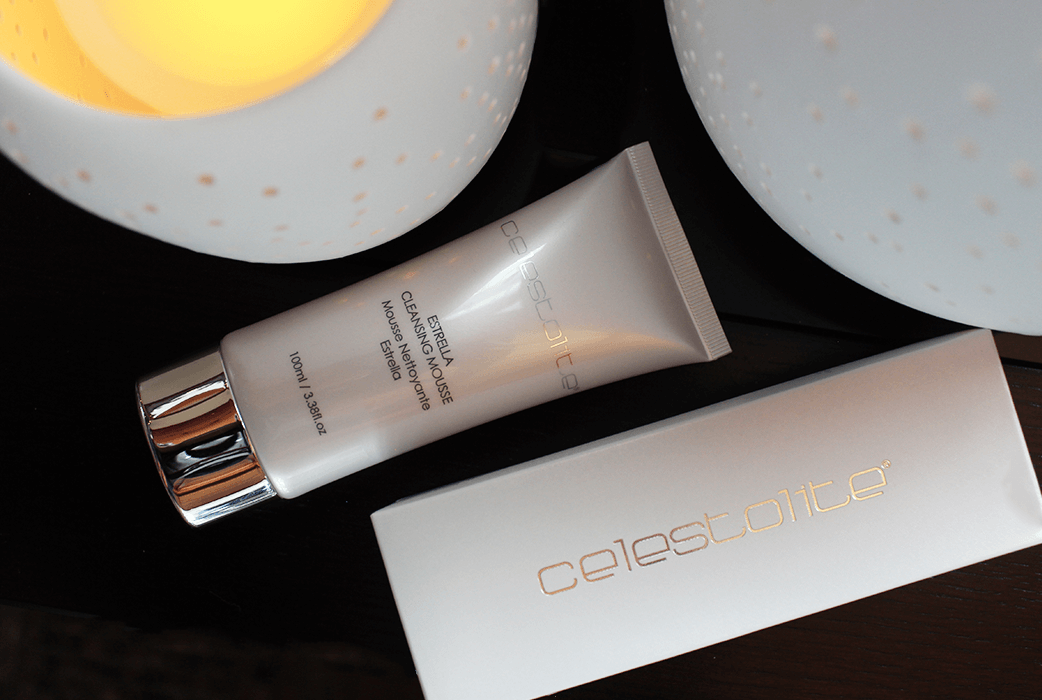If your shelves are filled with skincare products that you’ve purchased over the years, you could be unknowingly causing some serious harm to your skin.
How?
Because all skincare products have a shelf life – something that many people don’t realize. They’re not slapped across the front of packaging in the way that food items display a best before date, making it very easy to forget to keep an eye on expiration.
Why is shelf life for skincare such a big deal?
Read on as Celestolite explains…
Why is the Shelf Life of Skincare Products So Important?

The ingredients used in skincare products don’t last forever. Over time, they degrade, with this process speeding up depending on various factors.
Contamination is one. It’s near-impossible to completely stop bacteria from entering into a skincare product. This isn’t a big deal when a product is first opened as it will usually contain enough preservatives to stave off the effects of bacterial contamination. However, as time goes on, that bacteria will multiply and the power of the preservatives will weaken.
Research confirms this, with studies showing that all in-use cosmetics contain growing levels of bacteria. This means that each time you apply that product to your skin, you’ll be slathering your face with bacteria. The result? Irritation, redness, and even acne breakouts.
Worse still is the oxidization process that many ingredients undergo over time. Sometimes, this affects the product’s appearance or scent, causing it to change color or develop a funky smell. Even if those changes are visually very subtle, applying oxidized ingredients to your skin could trigger oxidative stress in your skin. This leads to inflammation while speeding up the skin aging process.
Even if a product miraculously manages to avoid bacterial contamination and oxidization, its efficacy is still going to decline over time. Its active ingredients won’t be quite as active. In many cases, continuing to use the product would be pointless as it won’t be able to do much for your skin.
Sometimes, such as with sunscreens, the lack of efficacy could be downright dangerous. You may think that your skin is still being protected from the sun when you apply an expired sunscreen. However, in actuality, it isn’t. This would then leave your skin vulnerable to sun damage.
How to Determine the Shelf Life of Your Skincare Products
So, without a specific expiration date printed on skincare products, how do you know what their shelf life is?
This is where the PAO symbol on your product comes in. PAO refers to period after opening, indicating how long a product is good for once it has been opened. Take a look at your skincare products and you’ll notice that the PAO symbol is followed by a number and an ‘M’. If it says PAO 12M, this means that the product will reach the end of its shelf life six months after being opened.
Some skincare products will also have an hourglass symbol. A best before date will usually be printed next to this, making it easy to determine that product’s shelf life.
What about if you have an unopened product that has been sitting around on your dresser for a while? If the product is still sealed and has been stored properly, it could remain stable for anywhere between two to five years. Once opened, the PAO then comes into play.
What if you don’t remember when you opened a product? Use your best judgment. Examine the product closely and if the color, texture, or smell has changed, it’s time to toss it. It goes without saying that any product dotted with mold spots should most definitely not be used on your skin!
How to Prolong the Shelf Life of Your Skincare Products
Of course, just like with food, best before dates are a guideline rather than a strict rule. There are so many factors that can influence this. Keeping these under control will help to slightly prolong the shelf life of your products:
Store Your Products in a Dark and Dry Environment
Proper storage is vital if you want your skincare products to last for as long as possible. Between exposure to light, heat, and moisture, it’s very difficult for a product to retain its potency if it hasn’t been stored correctly.
This means keeping your skincare products in a dark, cool, and dry environment. Avoid storing them in humid rooms, such as your bathroom. Whenever possible, try to avoid exposing your jars and bottles to direct sunlight when you’re using them too.
Store Preservative-Free Products in the Fridge
Preservatives play a key role in keeping skincare products stable for longer. However, not all skincare products have preservatives. This is particularly the case with all-natural products. This may be great for those with ultra-sensitive skin but it’s not good news in terms of the shelf life of a product.
Even if you have a dark, dry, and cool environment for storing your skincare products, this may not be enough for preservative-free formulas. They could still end up going off in just a few months.
To avoid this, consider storing your preservative-free products in the fridge. Just like when it comes to food, those stable, chilled temperatures will help to keep the ingredients in your products fresh and safe.
Seek Out Products That Use Opaque Packaging

As mentioned earlier, exposure to light can quickly degrade skincare products. This is especially the case if they contain potent active ingredients.
People often don’t realize how detrimental light can be to their skincare, particularly since many products are contained in transparent bottles and jars. Light enters the product from every angle, drastically reducing its shelf life.
To prevent this, look for products that make use of opaque packaging. This is particularly important when it comes to serums that contain high concentrations of active ingredients. All of the serums from Celestolite, for example, are housed in opaque bottles that block light from seeping through. Whether you go for our vitamin C-infused facial serum or our antioxidant-rich eye serum, you can be sure that the packaging of these products isn’t going to let you down!
Use Clean Hands When Scooping Products Out of Jars
Bacterial contamination is a big problem when it comes to skincare packaged in jars. Sure, some may come with an applicator that can be used to scoop the product out and then cleaned in between uses. However, in most cases, people tend to just use their fingers. It’s faster and so much easier.
However, if your fingers are dirty, then you’ll only be transferring all of the bacteria from your hands into your skincare products. This makes it vital to ensure that your hands have been cleaned before sticking your fingers into any of your skincare.
Of course, make sure that you thoroughly dry your hands too. You don’t want to end up contaminating your products with water either!
Don’t Share Your Skincare
Even if you follow strict cleanliness rules when it comes to using your skincare products, other people may not. This is the problem with sharing skincare products. You never quite know how they’re going to be treated by other people.
While you may be tempted to share your products with your partner, family members, or roommates, avoid doing so as much as possible. The more bacteria that contaminate your products, the shorter their shelf life will be.
Thoroughly Clean Any Dropped Lids or Caps

Ever opened a jar of cream or a tube of cleanser, only to drop the cap on the floor?
Unfortunately, the five-second rule doesn’t apply. As soon as that cap hits the floor, it’s going to end up covered in all of the dirt, grime, and bacteria that your floor is holding. You may not be able to actually see it all but, trust us, it’s there! Put that dirty cap back onto its product and contamination becomes a very big issue.
Instead, if you happen to drop anything, make sure that you thoroughly clean it before placing it back onto the product that it has come from. A quick rinse with water isn’t going to cut it either. You’ll need to use soap to make sure that all traces of bacteria have been removed.
Speaking of putting the cap back on…
Make sure that you properly secure the caps when closing your products. Skincare packaging is designed to be airtight since oxygen can quickly degrade many ingredients. Leaving any gaps will only allow oxygen to flood in. Again, this will shorten the shelf life of your products.
Make a Note of the Purchase Date and Opening Date
If you tend to use a number of different skincare products, it can be difficult to keep track of shelf life. This is particularly the case if each one has been opened on a different date. This is where you’ll need to employ some organizational skills.
Ideally, make a note of when you’ve opened each skincare product. The easiest way to do this is by grabbing a permanent marker and writing on your product’s packaging. Jot down the date the product was purchased and then, once you start using it, the date that it was opened. This way, you’ll be able to easily refer back to your notes to make sure that you stop using the product once it has expired.
Summary
Hopefully, after reading this, you’re now ready to take a look through all of the cosmetic products that you have to ensure that they’re all still stable and safe to use. Although we’ve only discussed skincare products above, shelf life is just as important when it comes to makeup and body care products too, so pay attention to these as well. It may not seem like a big deal if the products in question look and smell normal, but the consequences of using expired cosmetics can be dire for your skin. It’s much better to play it safe when it comes to your complexion, so that you don’t end up unwittingly causing unnecessary damage to your skin.
Click here to update your skincare arsenal with bestselling products from Celestolite.




1 comment on “The Surprising Truth About Your Skincare Products”